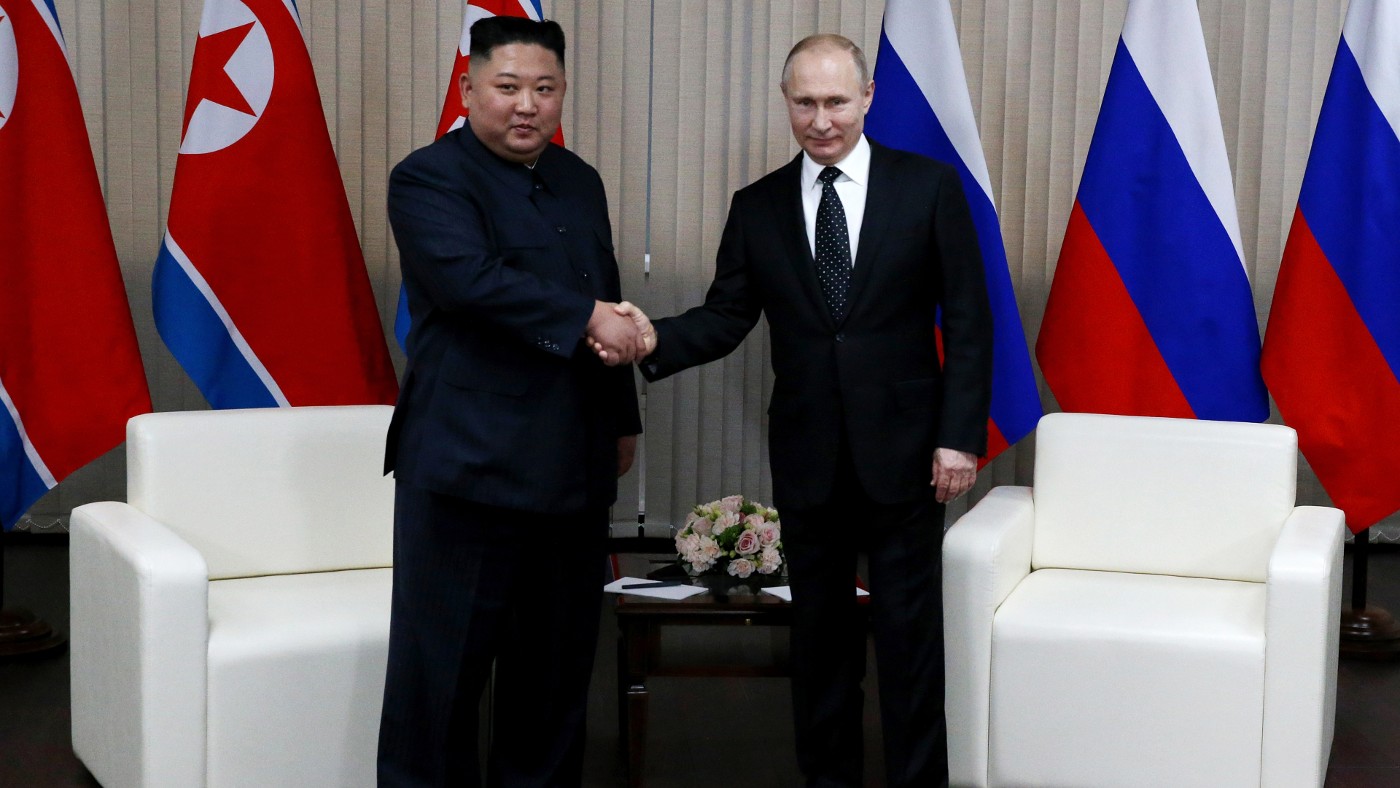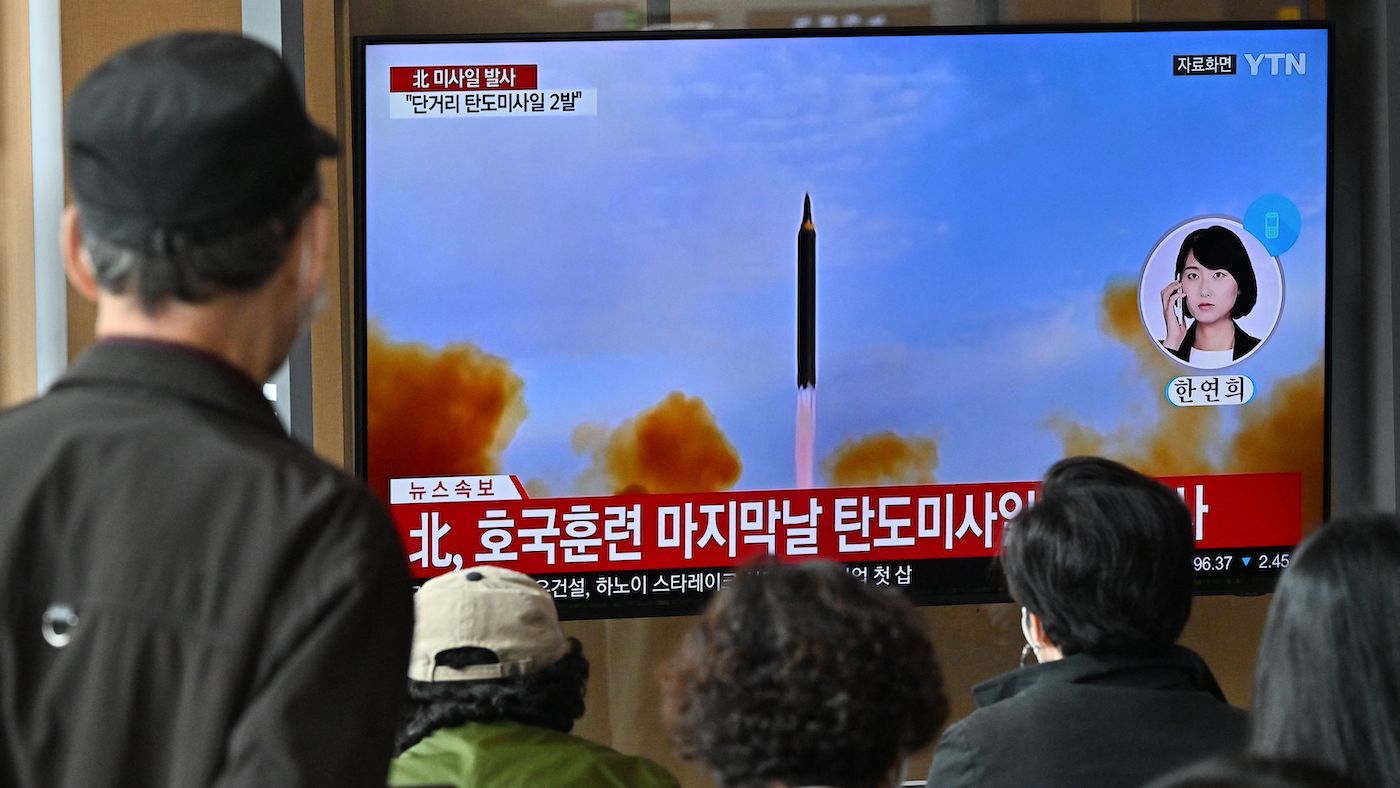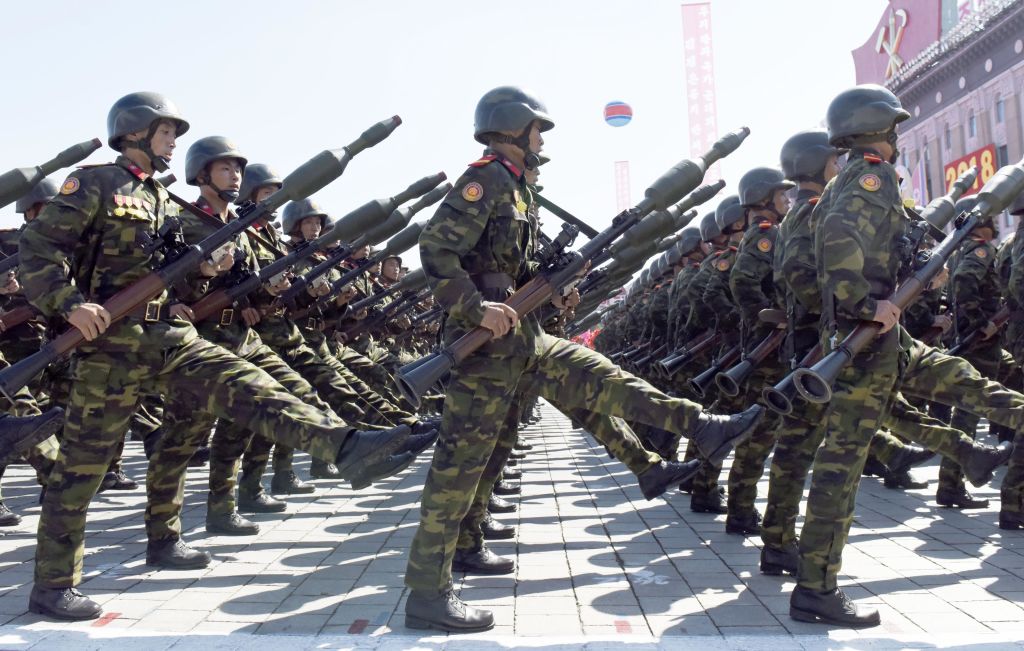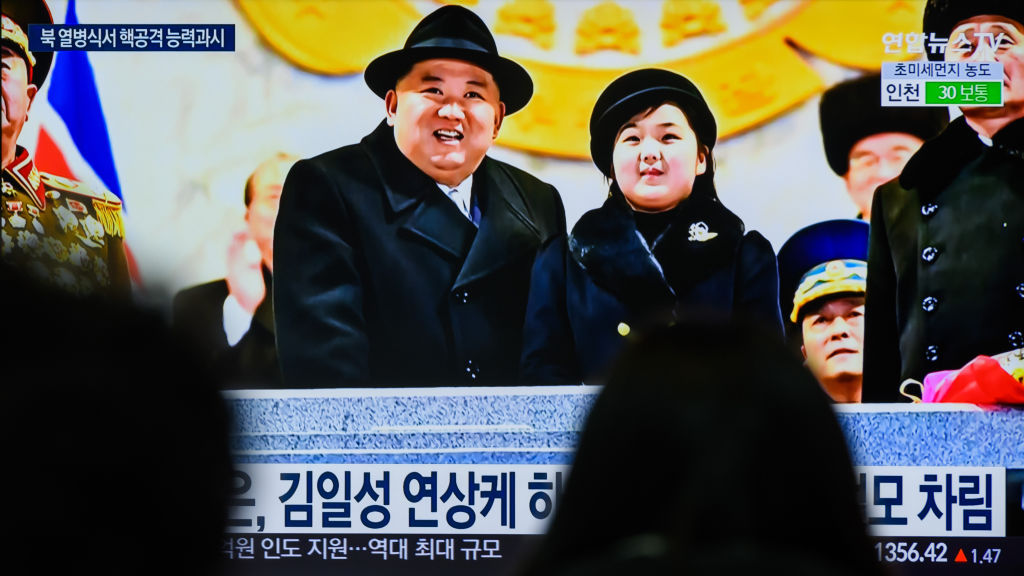The Week Unwrapped: Korean succession, terror by algorithm and German disquiet
Could a 10-year-old girl rule North Korea? Will an Isis victim upend web law? And why is Germany upset with its Oscars contender?
A free daily email with the biggest news stories of the day – and the best features from TheWeek.com
You are now subscribed
Your newsletter sign-up was successful
Olly Mann and The Week delve behind the headlines and debate what really matters from the past seven days. With Sorcha Bradley, Jamie Timson and Arion McNicoll.
You can subscribe to The Week Unwrapped wherever you get your podcasts:
In this week’s episode, we discuss:
The Week
Escape your echo chamber. Get the facts behind the news, plus analysis from multiple perspectives.

Sign up for The Week's Free Newsletters
From our morning news briefing to a weekly Good News Newsletter, get the best of The Week delivered directly to your inbox.
From our morning news briefing to a weekly Good News Newsletter, get the best of The Week delivered directly to your inbox.
Kim Jong Un’s daughter
Is the future female in North Korea? Since the country’s foundation in 1948, the secretive authoritarian state has been ruled by three – all-male – generations of the Kim family. But North Korean dictator Kim Jong Un has recently appeared at several official military events with his young daughter by his side. It has prompted speculation from Western media that Kim Ju Ae, thought to be around ten years old, is being primed to take over one day. But is all the speculation just a distraction from deeper issues in the country?
Algorithms in court
This week saw two cases at the US Supreme Court that could irreparably change the internet as we know it. They concern Section 230, US legislation that removes a website’s liability for potentially harmful posts created by other people. Now though victims of ISIS claim that the social media platforms and their advanced algorithms aren't doing enough to protect vulnerable people. But should Facebook, Twitter and Google be liable? And if regulation is the answer, who decides what that looks like and how it happens?
Disquiet on the German front
The standout success at the Baftas this week was All Quiet On The Western Front, a film also tipped for Oscars glory. But German critics have been increasingly vocal in their dislike for the adaptation. Their objections are two-fold: that it is historically inaccurate and that it diverges too far from Erich Maria Remarque’s novel. Are they right to call for a more faithful treatment of either the reality of the First World War or the fictional source material? Or, after a century of war and peace, should the film be judged afresh on its own merits.
A free daily email with the biggest news stories of the day – and the best features from TheWeek.com
-
 How the FCC’s ‘equal time’ rule works
How the FCC’s ‘equal time’ rule worksIn the Spotlight The law is at the heart of the Colbert-CBS conflict
-
 What is the endgame in the DHS shutdown?
What is the endgame in the DHS shutdown?Today’s Big Question Democrats want to rein in ICE’s immigration crackdown
-
 ‘Poor time management isn’t just an inconvenience’
‘Poor time management isn’t just an inconvenience’Instant Opinion Opinion, comment and editorials of the day
-
 Would North Korean weapons tilt the war Russia’s way?
Would North Korean weapons tilt the war Russia’s way?Today's Big Question Putin wants to boost ‘depleted stocks’ but Pyongyang’s arms may be in poor condition
-
 US soldier detained by North Korea after crossing border
US soldier detained by North Korea after crossing borderSpeed Read
-
 North Korea launches 1,000km missile towards Japan after threatening US
North Korea launches 1,000km missile towards Japan after threatening USSpeed Read Pyongyang warned Washington of ‘shocking’ repercussions over alleged spy planes
-
 North Korea claims 800,000 people volunteered to fight against the U.S.
North Korea claims 800,000 people volunteered to fight against the U.S.Speed Read
-
 The next Kim Jong Un
The next Kim Jong UnSpeed Read Is his daughter's turn in the public eye any indication of the leader's succession plans?
-
 U.S. holds air exercises with Asian nations following North Korean missile test
U.S. holds air exercises with Asian nations following North Korean missile testSpeed Read
-
 Kim Jong Un reportedly wants his daughter to be the only person in North Korea named 'Ju Ae'
Kim Jong Un reportedly wants his daughter to be the only person in North Korea named 'Ju Ae'Speed Read
-
 The Week Unwrapped: Chinese chips, the Pope in Africa and podcasting
The Week Unwrapped: Chinese chips, the Pope in Africa and podcastingpodcast Is China losing the microchip war? What is the Vatican doing in South Sudan? And has the podcast tide turned?